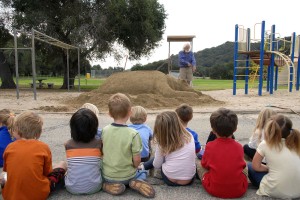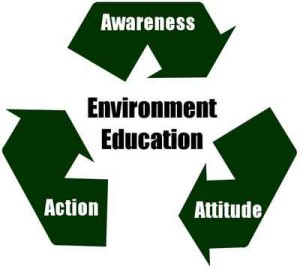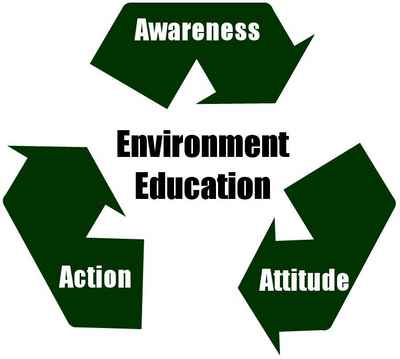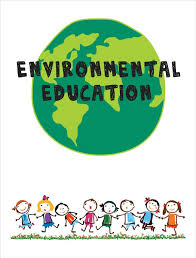At a time when the environment is being destroyed in more ways than one and we ourselves are to blame for most of it, it is important to start acting on its regeneration. We have to get conscious and act for the preservation of our environment and ecosystem. Nowadays, various efforts are being carried out towards the protection of nature. Organisations and NGO’s are working hard to make the earth a better living place. Recycling, green projects, conservation of wildlife are being carried out repeatedly by environmentalists. But this may not be enough. We have to address the issue from its root. Just a few conscious individuals are not enough to make a considerable difference. Here comes the importance of environmental education. This comprehensive subject approaches the problem from the root and tries to mend it.
Any step towards the betterment of the environment should start with proper education. Educating the masses about the environment we live in has become increasingly necessary and in fact crucial for its development. Proper knowledge gives a better perspective. Wrong information leads to ignorance which can be devastating. Environmental education was thus introduced in the school curriculums. Environmental education refers to any information regarding the awareness and sustainability of the environment supplied by organized efforts to the public, especially school students. It is now a very important subject taught in schools. However, environmental education can also take place outside the school in the form of magazines, blogs, and newspaper articles and so on.
Now why is environmental education so important for children? The answer is simple. The youth is the future of our countries. School is a developmental time for a child, when he starts building his mind, character and career path. Schools mould children to be better individuals. School pupils have a receptive and intelligent mind, making it the perfect time to educate them about our environment. If environmental education starts at an early stage, the students grow up to be conscious individuals working for the society. It is taking this goal in mind that environmental education has been introduced in the school curriculum of many countries. It is due to this change that the youth of today is much more environmentally conscious than the previous generation. Many students have later on joined organisations and have become an active part of many projects and protest, all relating to the environment. 
Children should be taught to care for their surroundings at a very early age. Teaching them to plant a tree or save paper is the responsibility of every parent. It is also important for the parent to set a good example for the child. Children should be corrected every time they waste food or water, pluck flowers from trees or harm animals. This will help them grow feelings towards the environment at an early stage.
On the other hand, schools have their own responsibility. It is a dual responsibility for the parents and the teachers. Children spend most of their time in school. It is a learning environment which can be put to use in imbibing positive feelings for the environment. The environmental education curriculum mainly focuses on the following things-
- Better understanding of everything related to the environment and its various issues.
- Awareness towards the environment from a young age.
- Zeal to do something towards the mitigation of environmental problems.
- Positive attitude and concern to protect and preserve the ecosystem.
- Exercising the imbibed knowledge in practical tasks related to the environment.

These are in short the main motives behind the concept of environmental education. But environmental education is not entirely textual. It is a combination of theoretical and practical discipline which is followed in schools. Environmental education is an elective subject in high school, but it is also there in elementary level. Apart from reading books, schools can make the students engage in field trips and community service once in a while. This practical approach to the subject is essential to make the children aware and sensitive towards the cause. Field trips and projects demand active participation from the children, which they can both enjoy and learn from. By performing these activities from a tender age, children continue to do it later in life. It is a sort of an initiation that leads to greater things later on.
The earth’s situation is such that it is our duty to make the next generation aware or rather warn them of the future of this planet. The gloomy future of our beloved earth is now in these tiny hands. This may be too heavy a burden to carry on those small shoulders, but we have to try. It is only by constant monitoring, proper education and inspiration that we can lead the future generation.
It is time that we encourage our future generation to study environmental education. Its importance is manifold. Not only does it make the students aware of the environment but it also makes them better individuals. Protecting the environment is a selfless act- it is this that environmental education is all about. It teaches us to be selfless, sensitive and kind towards all of humanity, the trees, animals and the entire world.


Leave a Reply